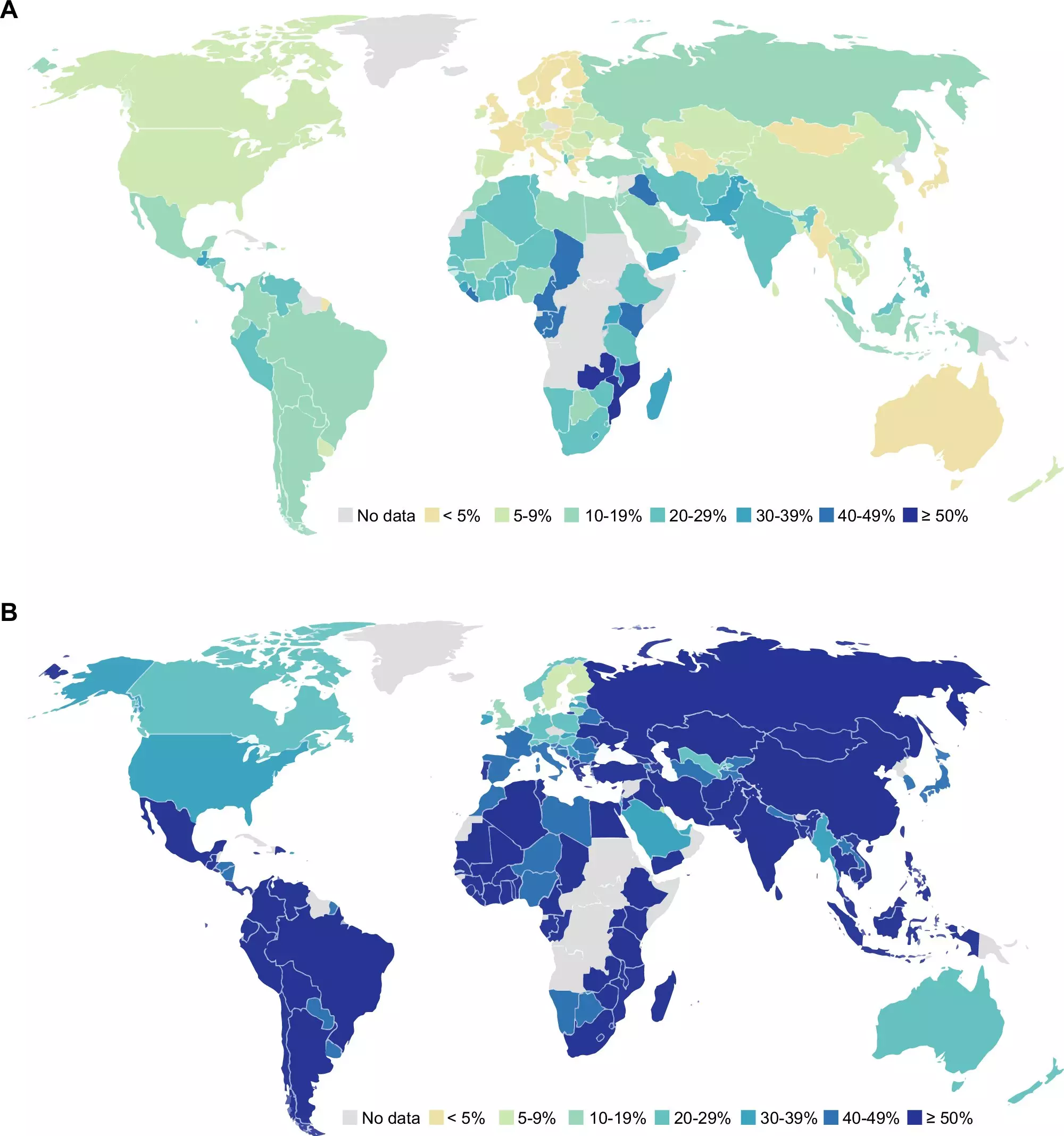Access to safe drinking water is a fundamental human right, yet a recent global study reveals a troubling reality: over half of adults worldwide anticipate harm from their water supply within the next two years. Conducted by health researchers from Northwestern University and the University of North Carolina at Chapel Hill, the study “Self-reported anticipated harm from drinking water across 141 countries,” published in the journal Nature Communications, highlights a critical gap between actual water quality and public perception. This article will delve into the findings of the study, examining how perceptions influence health behaviors, psychological well-being, and overall lifestyles while highlighting the importance of public trust in water resources.
The researchers utilized data gathered from nearly 149,000 adults across 141 countries as part of the 2019 Lloyd’s Register Foundation World Risk Poll. They discovered that a staggering 52.3% of respondents expressed a belief that their drinking water could harm them within a short timeframe. The study revealed that the highest levels of anticipated harm were found in nations such as Zambia, while Singapore reported the lowest. These findings prompt a critical analysis of how individuals’ fears about drinking water safety extend beyond empirical evidence, profoundly affecting consumer behavior and lifestyle choices.
When people lack confidence in their local water supply, they often seek alternatives, such as purchasing bottled water, which not only strains their finances but also has adverse environmental impacts. This trend also leads to poorer dietary choices, as individuals may turn to sugary beverages or highly processed foods instead of preparing meals using tap water. Such behavioral changes contribute not only to physical health issues but can also lead to psychological stress and a higher risk of depression.
The study notably identified key demographic factors linked to the anticipation of harm from drinking water. Women, urban residents, individuals with greater educational backgrounds, and those facing economic struggles were more likely to express concern about their water supply. This pattern raises important questions about the intersection of gender, education, and socioeconomic status in shaping public health perceptions.
Interestingly, one of the most significant predictors of anticipated harm was the Corruption Perception Index (CPI). Higher CPI scores correlated strongly with increased fears regarding drinking water safety, suggesting that trust in governmental integrity plays a crucial role in shaping public perceptions. This finding is particularly compelling in countries where infrastructure is ostensibly adequate, yet historical grievances over governance and transparency breed skepticism among the populace.
Compounding these issues is the fact that many water contaminants are not detectable through taste, smell, or sight, leaving consumers unable to assess risks independently. Consequently, individuals must rely on personal experiences, media narratives, and cultural beliefs to form their understanding of water safety. While it’s conceivable that some citizens accurately gauge water safety risks—drawing parallels to the well-documented water crisis in Flint, Michigan—misplaced fears can lead to harmful behaviors.
This highlights a serious public health concern: mistrust of drinking water can lead high-quality water sources to be shunned unjustly, creating a vicious cycle of misinformation that ultimately undermines health outcomes.
To tackle these concerning perceptions, the study authors propose several actionable steps. They advocate for enhanced transparency in water testing, making results accessible and comprehensible to the public. Moreover, replacing outdated infrastructure, like lead pipes, and providing home water filtration solutions in areas where contaminants are identified are essential measures.
Experts emphasize that rebuilding trust in drinking water sources is pivotal for improving public health outcomes. Aaron Salzberg, director of the Water Institute at UNC Gillings School of Global Public Health, argues for prioritizing safe drinking water initiatives within national development strategies. He highlights how increasing political commitment to this cause can help secure universal access to safe drinking water—a vital component of sustainable development.
The study on anticipated harm from drinking water reveals a pressing need not just for the assurance of safe drinking water but also for rebuilding public confidence in available resources. Mismatch between perceptions and actual water quality can lead to adverse health behaviors and increased psychological distress. It is imperative for policymakers and public health officials to recognize this gap in understanding and implement strategies that address both the physical safety of water sources and the community’s trust in them. Only through a holistic approach that incorporates education, transparency, and community engagement can we hope to tackle the global challenge of ensuring safe drinking water for all.


Leave a Reply